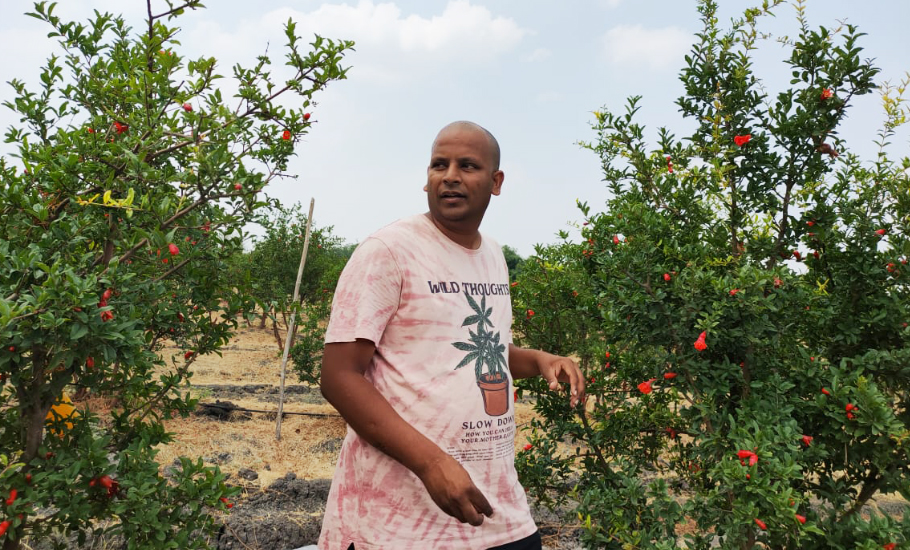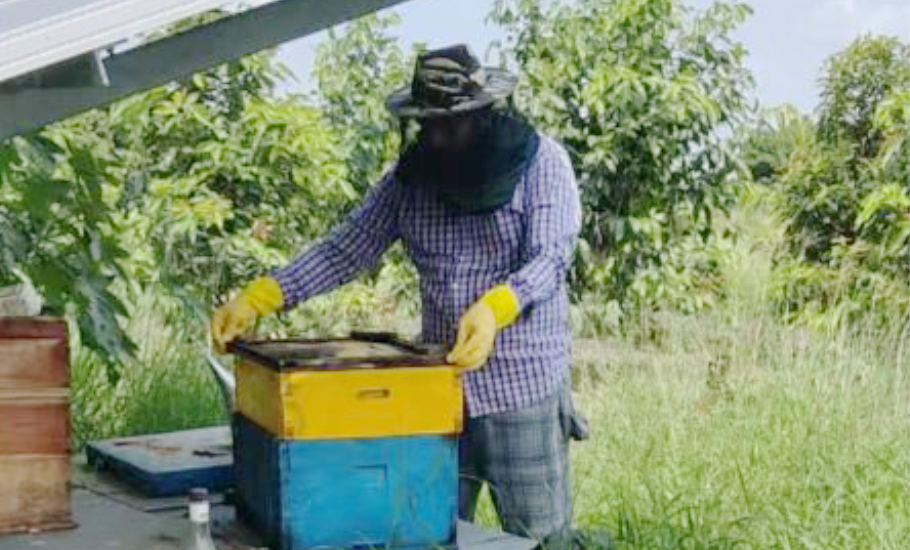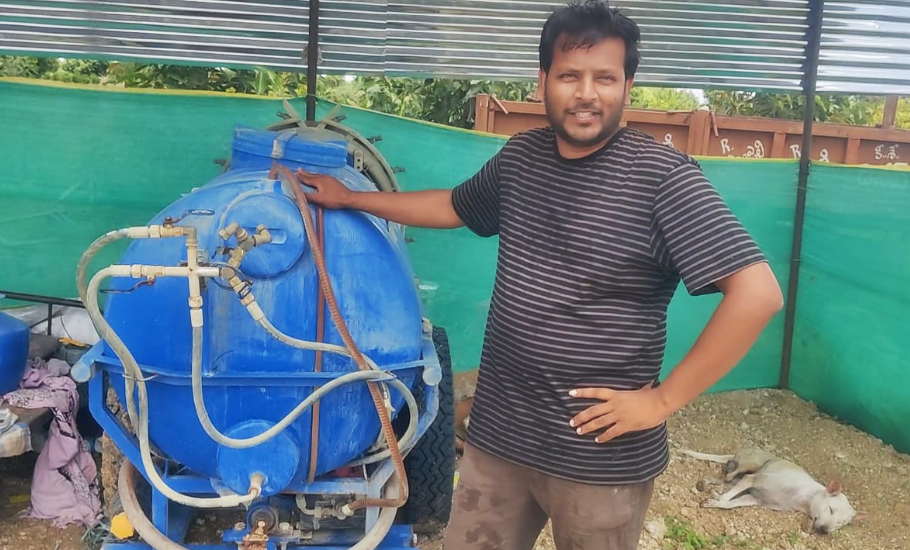
- Home
- India
- World
- Premium
- THE FEDERAL SPECIAL
- Analysis
- States
- Perspective
- Videos
- Sports
- Education
- Entertainment
- Elections
- Features
- Health
- Business
- Series
- In memoriam: Sheikh Mujibur Rahman
- Bishnoi's Men
- NEET TANGLE
- Economy Series
- Earth Day
- Kashmir’s Frozen Turbulence
- India@75
- The legend of Ramjanmabhoomi
- Liberalisation@30
- How to tame a dragon
- Celebrating biodiversity
- Farm Matters
- 50 days of solitude
- Bringing Migrants Home
- Budget 2020
- Jharkhand Votes
- The Federal Investigates
- The Federal Impact
- Vanishing Sand
- Gandhi @ 150
- Andhra Today
- Field report
- Operation Gulmarg
- Pandemic @1 Mn in India
- The Federal Year-End
- The Zero Year
- Science
- Brand studio
- Newsletter
- Elections 2024
- Events
- Home
- IndiaIndia
- World
- Analysis
- StatesStates
- PerspectivePerspective
- VideosVideos
- Sports
- Education
- Entertainment
- ElectionsElections
- Features
- Health
- BusinessBusiness
- Premium
- Loading...
Premium - Events

How Dr Pomegranate is saving crops and crop growers in Andhra Pradesh

Little did Ranganayakulu of Kuderu village in Andhra Pradesh’s Anantapur district know that he was getting sucked into a vicious spiral when he chose to enter pomegranate cultivation two years ago. The district, which receives the lowest rainfall in India after Rajasthan’s Jaisalmer, is known for groundnut cultivation under rain-fed conditions. Of late, sundry success stories and the pull...
Little did Ranganayakulu of Kuderu village in Andhra Pradesh’s Anantapur district know that he was getting sucked into a vicious spiral when he chose to enter pomegranate cultivation two years ago.
The district, which receives the lowest rainfall in India after Rajasthan’s Jaisalmer, is known for groundnut cultivation under rain-fed conditions. Of late, sundry success stories and the pull of huge profit margins in pomegranate cultivation have, however, have driven farmers such as Ranganayakulu to shift to pomegranate.
Forty-year-old Ranganayakulu, a tenant farmer, planted pomegranate plants on about 12 acres. But the semiliterate farmer did not notice the misfortune waiting in the wings to strike. A devastating blight attacked his crop. Clueless about what to do, he rushed to the local country consultants, called ‘doctors’ in the region. On their suggestion, he applied several rounds of expensive pesticides, apart from paying them a hefty fee. But Ranganayakulu’s efforts did not bear fruits — literally.
The consultants and pesticide sellers reaped money. Ranganayakulu, however, lost the crop and his investment worth Rs 22 lakh. On March 29 this year, he died by suicide.
Villagers say Ranganayakulu could have been saved had he reached the ‘right doctor’ at the right time.
Even as a growing number of farmers are turning to pomegranate cultivation, blight and pest attacks remain a nagging worry. The precarious condition has spawned an army of local consultants who collect huge sums to prescribe pesticides. These local consultants, popular as ‘doctors’ among the farmers, collect a fee ranging from Rs 5000 to Rs 20,000 per visit to the field.

Fortunately, many pomegranate farmers have found Bhuvaneswar Chakravarthi, popularly known as Dr Pomegranate, who has not only made windfall gains by cultivating pomegranate himself, but also ensured people in the district are able to reap dividends from their crop.
How Dr Pomegranate came into being
Bhuvaneswar Chakravarthi’s transformation into Dr Pomegranate, however, was initiated by a rather unfortunate turn of events. Working as a software professional in Bengaluru, farming was not something the 32-year-old was considering. But then the IT professional lost his father to the Covid pandemic in 2020. Apart from grief, Chakravarthi now had to deal with a huge debt that the deceased had left behind.
Chakravarthi had only options before him — dispose of the ancestral land to clear off the debt and go back to Bangalore, or settle down in Thagguparthi, a remote village in the Anantapur district, to become a farmer. The thought of selling the 16-acre farmland his father bequeathed to him raised an emotional turmoil. So, he decided to give agriculture a shot.
Since Chakravarthi was anyway in a work from home arrangement with his company due to Covid, turning to horticulture did not require him to quit his job.
Unlike his father, who struggled with traditional crops, Bhuvaneswar felt the risk in the pomegranate cultivation was worth facing. While working for the company at night, he devoted his daytime to thoroughly studying the problems faced by pomegranate farmers. He consulted experts in the field. On their advice, he studied methods followed in Maharashtra, which is the highest pomegranate producer in India. He also found ways to procure pesticides at cheaper rates from other states.
Armed with the information he gathered from all sources, Chakravarthi evolved his own method of precision farming. After gaining confidence that he could handle the risks, in 2021, he experimentally planted saplings on 6 acres of black soil, which many said won’t be suitable for pomegranate. The experiment was such a huge success that he earned a profit of Rs 16 lakh with an investment of Rs 50,000 per acre.
In no time the success of his techniques used to grow pomegranate in black soil, which included using honey bees for pollination, started making waves in the district. In 2022, Chakravarthi went in for the second crop and he was hopeful to reap a revenue of Rs 50 lakh from the same 6 acres. But unprecedented rain hit his crop at a crucial time. His crop management skills, however, contained much of the damage, ensuring the new farmer earned Rs 20 lakh, Rs 4 lakh more than what he got the previous year.
He is now the most sought-after consultant not only in Anantapur but also across many districts in Andhra and Telangana. What adds to the appeal of Chakravarthi’s work is that he mixes profitmaking with philanthropy. He offers free consultancy to farmers and guides them on how to detect the onset of blight, wilt disease, the moisture level in soil, when to water, when to go in for crops, and how to procure pesticides at cheaper rates. He has also evolved some home remedies using eggs, lemon salt, and detergent that is readily shares with those in need.
“Pomegranate, despite the inherent risks is the right crop for Anantapur district, where farmers live on the verge of disaster. If carefully managed, the crop yields a profit of Rs 5 lakh to Rs 10 lakh per acre,” he told The Federal, amid constant ringing of his mobile.
Growing pomegranate in Andhra
Anantapur is the driest district of Andhra Pradesh with an annual rainfall of 525 mm against the state average of 925 mm. Less than 11 per cent of the cultivable area is irrigated leaving vast tracts of farmland dependent on erratic monsoons. Groundnut and sunflower form the major crops in dryland agriculture. But since these crops are vulnerable to pests, farmers are turning to pomegranate.

In the recent past, soil and weather conditions in the region have been found to be suitable for horticultural crops. In the last two decades, the district has become the hub of horticultural crops such as mango, banana, guava, sapota, orange among others, causing a shift from groundnut and sunflower to horticultural crops.
State subsidy has also been an encouraging factor to shift to horticulture. An official of the horticultural department said that Israel, which had an annual rainfall of just 435 mm, was their inspiration. “When Israel could become a major exporter of fruits in the world with its meagre rainfall, why not Anantapur, which is better placed,” he said.
As a result, Chakravarthi stays in high demand. He receives calls from hundreds of farmers from morning to evening seeking his advice on handling their crops. He patiently attends to every call and responds on WhatsApp till midnight every day. If is he finds a farmer is not in a position to pay, he visits free of cost.
“Most of them are small farmers and new to the crop. The consultants are exploiting their ignorance. My idea is to educate them on how to avoid risks with tact and minimise damage. My objective is to set up a Farmer Producer Organization (FPO) to share knowledge and to face the challenges collectively,” Chakravarthi said.
According to him, the immediate need is to bridge the knowledge gap in pomegranate cultivation. “I want my FPO to fill that gap to help farmers. I have started a WhatsApp group and a YouTube channel to begin with. I am visiting farms at my own expenditure to save the crops which are highly sensitive to weather changes. You will be surprised to know that farmers are driven to hopeless and desperations due to a lack of proper extension service. I am doing my bit to stand by the farmers who easily lose hope due to crop failure,” he said.
The government apathy
Many farmers are unhappy with the incumbent YS Jagan Mohan Reddy government’s move to discontinue the subsidy on drip irrigation and solar pump sets, which was initiated under the Chandrababu Naidu-led Telugu Desam Party government. Still, the lure of horticulture is irresistible. One of the new entrants into district horticulture is pomegranate. By 2018, as much as 10,000 ha was under pomegranate cultivation, which began in 2005.
According to Mahesh Reddy, who planted pomegranates on the outskirts of Anantapur town on 20 acres of land, the growing demand for the fruit, especially following the Covid pandemic, is the main reason behind the expansion of crop area in the district.
T Dadavali of Sanapa village has planted 800 saplings on 2 acres of land. Dadavali. A vegetable grower, he was inspired by the talk of huge profits. He hopes that the revenue per acre would be between Rs 2 lakh and Rs 9 lakh, but is concerned about the risk posed by blight and pests.

The huge local demand as well as the export potential has led to the entry of companies such as Big Basket, Reliance, Future Group, Desai Fruits among others, which have started procuring the crop from the farmers directly.
While things are looking up for horticulture in Anantapur, blight, pests and pesticides threaten to turn the apple (read pomegranate) cart if not properly addressed. Chakravarthi has however given hope that the knowledge gap in the area will be bridged and no Ranganayakulus would be forced to take the extreme step in the future.
